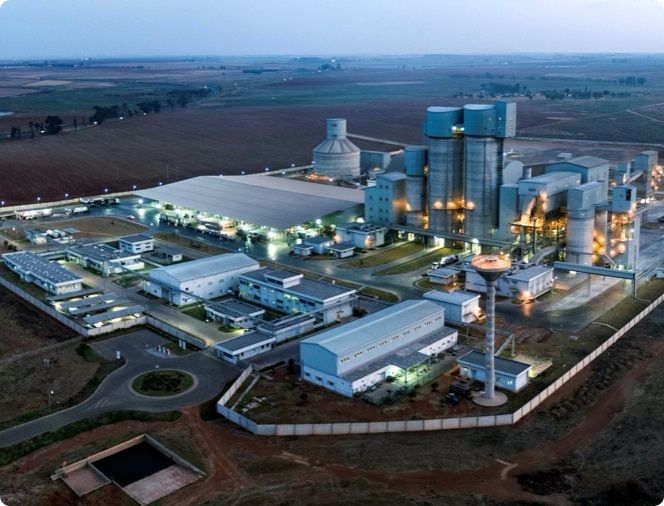A Green Vision Unveiled at the 12th Africa Cement Trade Summit
The 12th Africa Cement Trade Summit commenced in Abidjan, Cote d’Ivoire, serving as the stage for Dangote Cement Plc to illuminate industry players on its pioneering efforts in environmental sustainability. Mr. Arvind Pathak, the Group Managing Director of Dangote Cement, took the spotlight to expound on the cement giant's commitment to environmental conservation through the adoption of Alternative Fuels (AF) in cement production.
The Energy-Intensive Reality
Cement production stands as an energy-intensive process, with thermal energy consumption reaching about 3.3GJ/tonne of clinker produced. Moreover, the electrical energy consumption is substantial, ranging between 90 – 120kWh/tonne of cement. Mr. Pathak emphasized that decarbonization is not a choice but an imperative. Here, the integration of alternative fuels becomes pivotal, replacing fossil fuels and proving effective in reducing emissions.
A Beacon of Environmental Responsibility
Delivering a paper titled "Utilisation of Alternative Fuels as a Strategy for Sustainable Cement production in Africa," Mr. Pathak underscored the significance of alternative fuels, encompassing municipal, agricultural, and industrial wastes. These alternatives, when used in place of fossil fuels, exhibit efficacy in emissions reduction, aligning with Dangote Cement's dedication to environmental sustainability.
The Global Cement Landscape
With the global demand for cement surging to 4.2 billion tonnes in 2020 and a projected population growth of 12‑23% by 2050, Dangote Cement recognizes the imperative to include alternative fuels in the fuel mix. The cement industry, vital for addressing Africa's infrastructure deficit, contributes 7% of the world’s CO2 emissions. This challenges the industry to manage fuel sourcing and energy usage meticulously.
Dangote Cement's Forward-Thinking Approach
Mr. Pathak shared insights into Dangote Cement's journey from being a major bulk cement importer to becoming a net exporter, highlighting the company's strategy for decreasing CO2 emissions. The commitment is evident through sustainability reporting, with the company aiming to become a regional leader in sustainability. The goal is to continuously enhance performance in energy efficiency, waste management, water consumption, and greenhouse gas emissions monitoring.
The Dangote Way: Sustainability in Action
Dangote Cement's sustainability pillars, encapsulated in "The Dangote Way," drive the company's efforts to provide access to safe, affordable housing. The strategy involves a deliberate focus on fuel substitution, specifically using alternative fuels. While acknowledging the persistence of emissions challenges in the industry, Mr. Pathak remains optimistic that the cement sector will play a pivotal role in addressing climate change.
Tackling Waste and Emissions
Beyond addressing emissions, Dangote Cement's utilization of alternative fuels offers a solution to Africa’s waste problem. By following the best practices outlined in the Stockholm Convention on Persistent Organic Pollutants (POPs), the company stands at the forefront of treating hazardous waste. As urbanization contributes to increased waste generation, Dangote Cement emerges as a solution provider, aligning its efforts with Africa’s waste management needs.
A Future-Focused Cement Giant
In conclusion, Mr. Arvind Pathak's presentation at the 12th Africa Cement Trade Summit showcased Dangote Cement's unwavering commitment to environmental sustainability. By prioritizing alternative fuels, the company not only addresses emissions but also positions itself as a transformative force in the cement industry.




